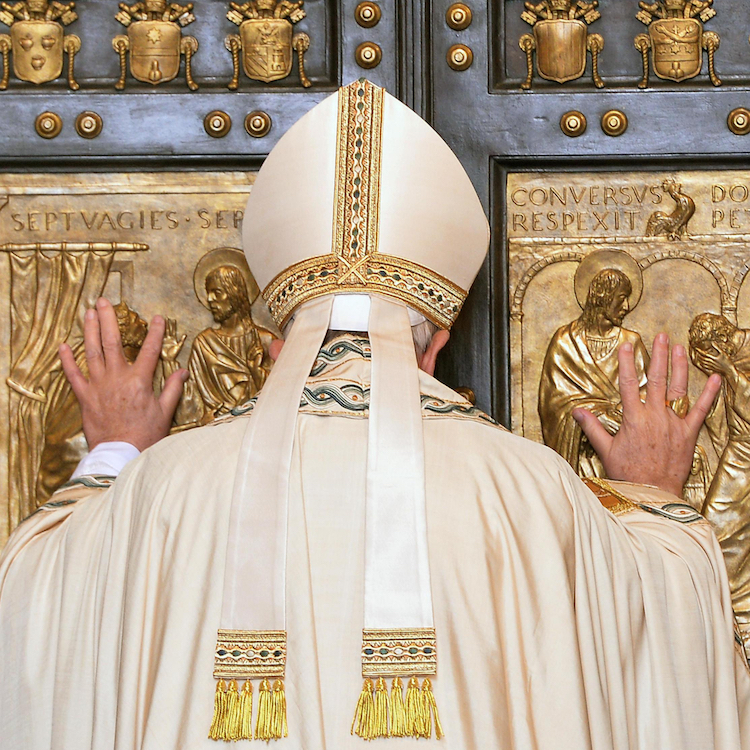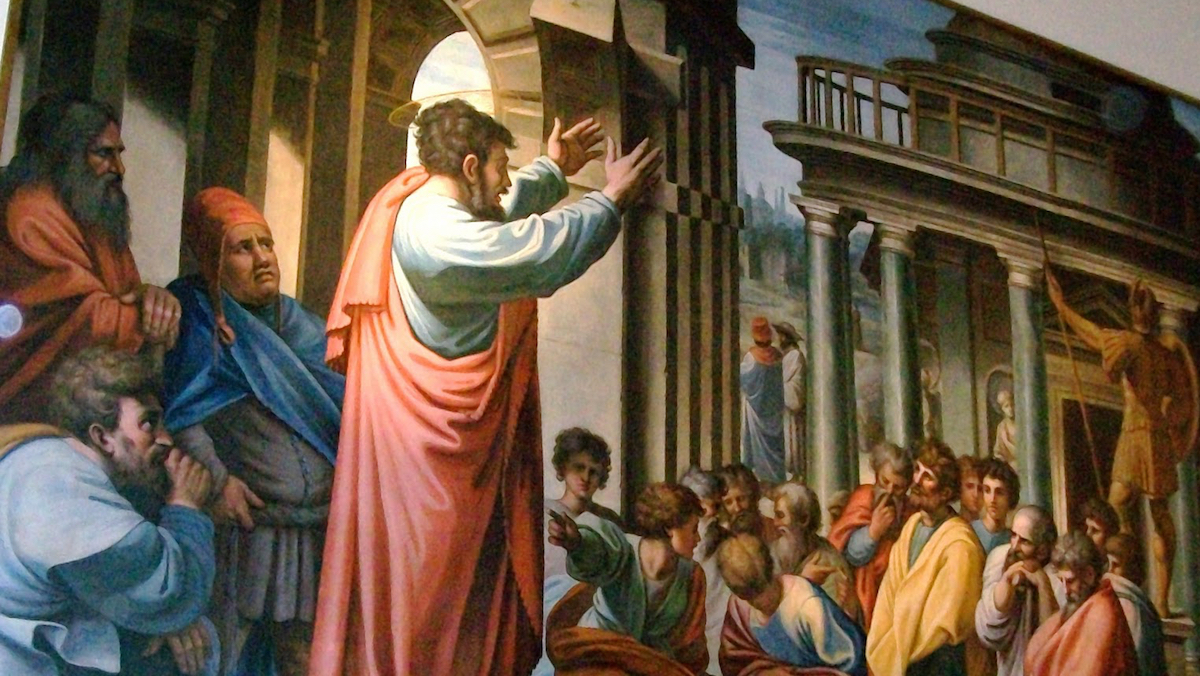Many years ago, a woman named Gladys Feighan was visiting a patient at Saint John’s Hospital in Detroit when she heard that now Venerable Fr. Solanus Casey was also a patient there. After locating Solanus’ room and convincing a Capuchin brother outside to allow her a visit with the future saint, she eventually entered and found the priest seated at a small table. After making eye contact, Fr. Solanus welcomed her and asked her to sit down. He then asked her a question: “What Gladys, do you want from God?” She replied: “I want a baby. Another baby.” She also told him about her blood problem and three prior miscarriages, but then sighed, “Perhaps I am selfish.” But quickly, Fr. Solanus responded: “No, you are not selfish. Motherhood entails so many responsibilities and bringing up a child as it should be brought up is doing God’s work.” As he spoke, Gladys remembered how he trembled with emotion. “Kneel down, and I will bless you, and your husband, and all your family.” And with tears in his eyes, Gladys recounted the words Fr. Solanus spoke to her: “You will have another child, Gladys. Your Blessed Mother will give you another child. You must believe this so strongly that before your baby is born you will get down on your knees and thank the Blessed Mother. Because once you ask her, and thank her, there’s nothing she can do but go to her own Son and ask Him to grant your prayer that you have a baby.” Years later, in telling this story to the Father Solanus Guild, she noted that by the time her twin babies were born, Father Solanus had passed away. (Adapted from: Venerable Solanus Casey, O.F.M., Cap., Brian Kelly, www.catholicism.org, June 19, 2009)
On this Fourth Sunday of Advent, I begin with this story because it shows what can happen in our lives when we open ourselves to God’s love and trust in His divine providence; that is, to the way He, with wisdom and love, cares for and directs all things in the universe. The Prophet Micah (5:1-4) tells us that “…from you shall come forth for me one who is to be ruler in Israel; whose origin is from of old, from ancient times.” Jesus is that heir! For God promised that an heir of David would reign on his throne forever (see 2 Sam 7:12-13; Psalm 89; Psalm 132:11-12). As the Psalmist (80) makes known, Jesus is the shepherd of Israel who has come to save us.
And in the story of the Visitation (Luke 1:39-45), a most beautiful thing happens. The old points to the new. Now if we recall, Elizabeth was a woman of the Old Testament. She was the wife of Zechariah, a Temple priest with a high rank. And the Temple? It was not just a place built to honor God, but also one that pointed to Him. Given all of this, do we think it was by mere chance that God chose St. Elizabeth to be the mother of John the Baptist, the final prophet of the Old Testament? Do we think it was not John’s destiny to leap for joy inside of his mother’s womb while in the presence of Mary and Jesus? Do we think it was not John the Baptist’s divine mission to point Jesus out to the people and then decrease? Of course it was! And Mary? Through the words of her cousin, Elizabeth, we can see her destiny, as well: “Blessed are you among women, and blessed is the fruit of your womb.” (Luke 1:39-45) In Elizabeth and Mary, we have the examples of two faithful women who show us that it is not only possible, but wise, to completely open our lives to God’s plan and love.
While we are speaking of openings, some of you may be aware that on December 8th, the Solemnity of the Immaculate Conception of the Blessed Virgin Mary, Pope Francis opened the Holy Door at St. Peter’s Basilica. In doing so, he declared a Jubilee Year of Mercy and spoke these words regarding what we Christians are to become:
“You cannot conceive of a true Christian who is not merciful, just as you cannot conceive of God without his mercy. Mercy is the key word of the Gospel…We should not be afraid: We should allow ourselves to be embraced by the mercy of God, who waits for us and forgives everything.”
The Gospel of John contains Jesus’ divine [“I Am”] declarations. Among them, Jesus tells us that He is: the Living Bread (Jn 6:51); From above (8:23); the Light of the World (8:12); the Good Shepherd (10:11); the Son of God (10:36); the Resurrection and the Life (11:25); The Way, the Truth, and the Life (14:6); and the True Vine (15:1). But He is also another. In John 10:9, Jesus says: “I am the gate [door]. Whoever enters through me will be saved, and will come in and go out and find pasture.”
Jesus is the door that our Holy Father, Pope Francis, is encouraging us to walk through. For in walking through that door and finding Jesus, we will experience His love and peace, mercy and forgiveness. But only if we open our lives to Him.
Now some of us will say that we are comfortable with the doors we presently move in-and-out of. In walking through them, we remind ourselves that we are comfortable and have found happiness in the material things we claim to own. But do we really own them? Or do they own us? And in allowing mere things to own us, do we lose our ability to marvel at what God has done—and continues to do—for us? Do we see his handiwork, his love, and his mercy alive and active in our lives? Do we see the way God places others in our midst as a reminder that He loves us so dearly and desires that we live with Him—in eternity?
Did you know that each time we attend Mass and receive Holy Communion that God opens for us a door to heaven so that we might peer inside? Did you know that each time we receive the sacraments that God touches, heals, and loves us in the most unimaginable of ways? Did you know that God loves you and me so much that He sacrificed His only Son so that we might live? (John 3:16)
A few nights ago, I went to confession. After receiving absolution, the priest looked deeply into my eyes and told me: “Don’t be so hard on yourself. The God of mercy has forgiven you. God loves you.” Over the past few days, I’ve pondered those words carefully and thought isn’t that the message for each of us as we prepare for Christmas? That God loves each one of us that He took upon himself our very humanity and stretched out His arms at Calvary so that we might live. That is the message. God loves us. And with God’s love, what more do we need?









Nice essay on God’s love. I like the way you introduce your essays with a good story. The one about Fr Casey was very moving. The essay was jam packed with many points to meditate on.